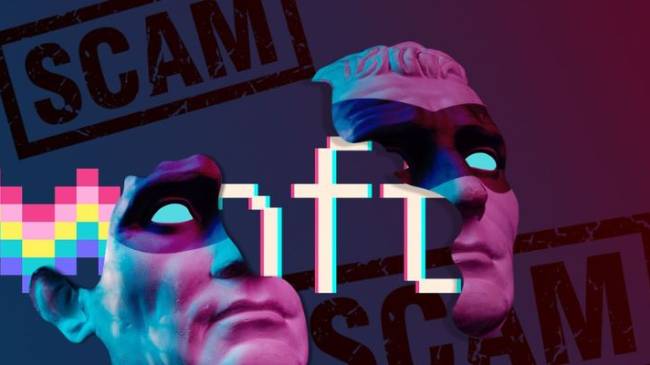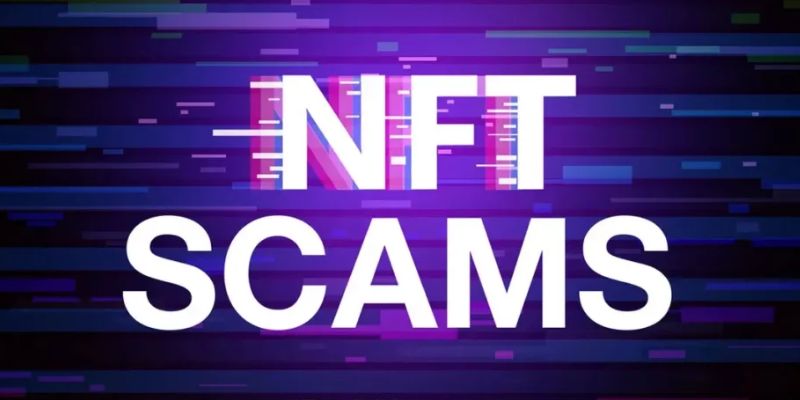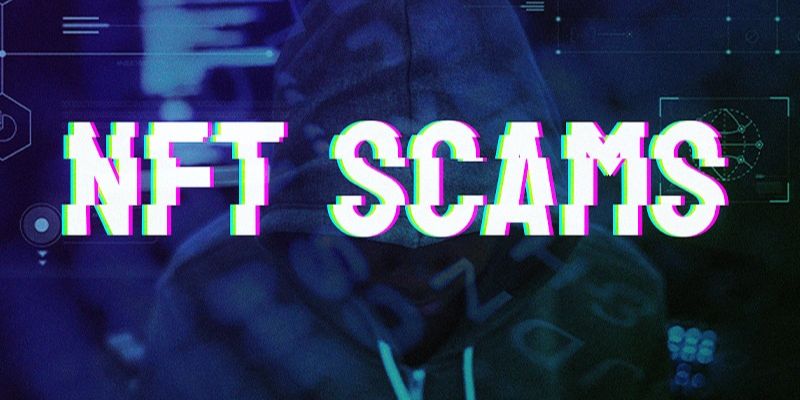The growth of the cryptocurrency industry has been accompanied by the rise of NFTs, which have transformed from a niche technology to a thriving market for digital collectibles, democratizing and empowering the creator economy. NFTs have made a significant impact on various industries such as art, music, and sports, with examples such as Bored Apes and NBA Top Shot highlighting their widespread appeal and mainstream use case, providing blockchain technology with an exciting opportunity for innovation. However, with the proliferation of NFTs and the high potential for profitable digital collectibles, the risk of fraud, scams, and theft has also increased. The possibility of dishonest actors taking advantage of unsuspecting individuals in the nascent and unregulated NFT market is a significant concern.
Table of Contents
Phishing scams
Phishing is a type of scam that is prevalent in various applications and platforms such as Discord, Telegram, Whatsapp, Facebook, and Instagram. Attackers often send malicious links that bring unsuspecting victims to fake NFT minting pages that contain smart contracts capable of draining their wallets if signed. There are many variations of this scam, including instances where the official Discord of an NFT project becomes compromised, allowing exploiters to use the official channel to broadcast their malicious "honey pot" link.
In Discord scams, hackers can gain admin-level access to a server or DM members of the Discord community. Additionally, fraudsters may purchase authentic-looking domain names, including ENS addresses, and run Google search paid advertising campaigns against them to drive traffic to a fake URL containing a malicious smart contract. The goal of phishing attacks is to deceive victims into believing that a fake malicious link is legitimate.
To avoid falling victim to phishing attacks, individuals should refrain from clicking on suspicious links, attachments, or pop-ups. It is important to always verify URL domain names, email addresses, and social media handles to ensure their authenticity. It is also crucial to be vigilant about fake ads and fraudulent email addresses purporting to be customer support. Individuals should not share their seed phrases, credentials, or private keys with anyone and should use strong passwords and enable two-factor verification to protect their accounts.

Plagiarized listings
There have been instances where scammers have created fake websites that mimic popular NFT marketplaces or minting sites in an attempt to deceive users into purchasing counterfeit items. In some cases, these fraudulent NFT pages misrepresent their relationship with legitimate NFT pages. OpenSea, a popular NFT marketplace, has reported that over 80% of the items created using their shared storefront contract were fake or spam.
To avoid falling victim to NFT scams, it is important to always verify the authenticity of NFT marketplaces, including their website URLs and social media accounts. Look for verified checkmarks on sellers' social media and Discord accounts to confirm their legitimacy. If you have doubts about the authenticity of a transaction, reach out to the artist or seller on social media to confirm its validity before making a purchase. Take your time and don't rush into buying an NFT until you have confirmed that it is genuine.

Exits scams (also known as “rug pulls”)
Rug pulls, also known as "rugs," have become infamous in the world of NFTs. These scams are perpetrated by the founders of a project who falsely market their venture with the promise of achieving certain goals but without any real intention of doing so. The scammers will then raise funds, typically through NFT mints, and make off with the money, leaving the project to fail.
A recent example of a rug pull is the Big Daddy Ape Club, in which the developers raised over 9,000 SOL before abandoning the project. The anonymous nature of blockchain developers, combined with the irreversible nature of transactions, creates a strong incentive for scammers to engage in theft. Exit scams can also be more subtle, as the developers may "move the goalpost" by changing timelines and project initiatives, extending the project's timeline further and further out.
Typically, rug pulls occur in three phases. First, the developers will raise money through an NFT mint, promising to achieve various objectives without any intention of doing so. In the second phase, they will often change timelines and project initiatives to delay milestones. Finally, in phase three, once interest in the project wanes, the funds raised in phase one are moved into personal wallets, often using mixers to obfuscate stolen funds.
To avoid being a victim of rug pulls, it is essential to thoroughly research the background of NFT project teams on social media platforms like LinkedIn and Twitter. Even anonymous artists and developers can have a trusted reputation within the crypto community, but it is crucial to examine social media follower counts and engagement. One should also review the project's roadmap and assess whether it is realistic. Additionally, seeking input from veterans of the NFT community and verifying any endorsements from reputable individuals or organizations can be helpful in avoiding rug pulls.

Dust attacks
A dust attack is a fraudulent tactic where a person who has minted a genuine NFT discovers an unfamiliar NFT randomly appearing in their digital wallet. If the victim engages with this unverified NFT by selling or transacting with it, they may inadvertently execute a malicious smart contract that drains their wallet of funds. Unfortunately, this type of scam is not exclusive to popular NFT projects; rather, attackers also target unsuspecting users by sending harmful NFTs to their wallets.
To avoid falling victim to this scam, it is crucial to monitor your digital wallet frequently. If you come across an unknown NFT in your wallet, it is imperative not to interact with it in any manner to safeguard your assets.
In conclusion, NFTs can be a great investment opportunity, but it's important to protect yourself from scams. Always do your research, be wary of unsolicited offers, and keep your private keys safe. By following these tips and tricks, you can invest in NFTs with confidence. Follow Uniultra to update more knowledge and tips when investing in NFT.






